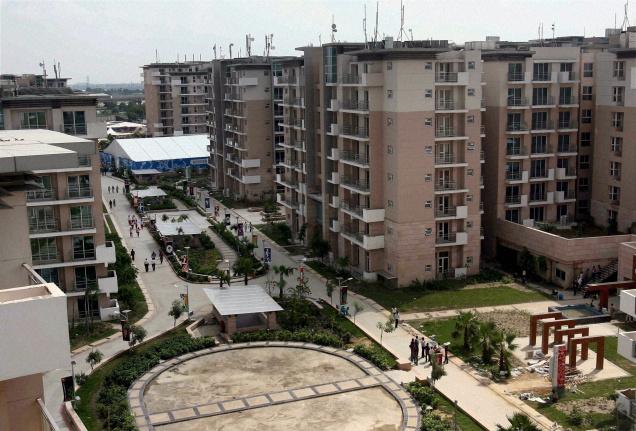Bottom Line: The Indian housing market needs clarity over the dual charge of IFMS (Interest Free Maintenance Security) and Sinking Fund by the developers. Buyers call it arbitrary.
 After having spent over a decade in Australia when Amrendra Kishore returned to India he bought an apartment in Noida. He paid an upfront Rs. 50 per square feet as IFMS (Interest Free Maintenance Security) to the builder at the time of possession.
After having spent over a decade in Australia when Amrendra Kishore returned to India he bought an apartment in Noida. He paid an upfront Rs. 50 per square feet as IFMS (Interest Free Maintenance Security) to the builder at the time of possession.
He had earlier done the same in Sydney and hence there was no issue over the payment. However, he was taken aback when the monthly maintenance fee had additional 20 paise per square feet charges as sinking fund.
Today, he has dragged the developer in a consumer court over the dual payment of what is same nature of payment. Globally, the IFMS has replaced the sinking fund and it is an amount kept in bank fixed deposit for unexpected emergencies and long term structural renovation.
Generally, the IFMS is charged keeping in mind its accumulated interest that would take care of the long-term renovation, if any, and other contingency.
“Unfortunately, in India the concept of sinking fund and IFMS is not clear. Within the Noida market itself various developers are adopting various methodology. While some of them have adopted to global practice of IFMS, there are many others who are charging both the IFMS as well as the sinking fund,” says Kishore.
Clarity needed
- IFMS has introduced in many countries as a one-time charge to replace the recurring sinking fund
- Some developers still charging both IFMS & sinking fund, while others charge one-time IFMS
- Legal opinion divided over the charges under IFMS and sinking fund
The legal opinion is also divided over the issue and this often discourages the home buyers paying dual charges to contest. Many legal experts believe that the cases like that of Amrendra Kishore might settle the issue and a broader guidelines are issued.
The developers who are charging the dual payment of IFMS and sinking fund maintain that sinking fund and IFMS amount are different from each other. Sinking fund contemplates a sum of money periodically set aside by the owners of an estate to cover unexpected emergencies and long-term structural costs.
IFMS on the other hand is meant to cover the day to day costs of the facilities’ upkeep. It is typically used to cover the costs that are predictable, recurring and relatively small. The developers maintain that they use it to cover the costs that are predictable, recurring and relatively small. Such cost range from the regular payment of contractors, to the payment of insurance premiums, to minor reparations and the like.
However, there are developers who challenge the collective trade practices. Nikhil Hawelia, Managing Director of Hawelia Group categorically says that the developers should avoid wrong practices. According to him, the IFMS has been introduced to replace the earlier sinking fund.
“I do not think there is any confusion over the issue. Charging both the IFMS and inking fund is not only unethical on part of the developer but also illegal. In any case, IFMS is not the property of the developer but has to be passed on to the RWA (Resident Welfare Association) in due course of time. A developer is only custodian of IFMS till the maintenance is handed over to the RWA. Monthly charges are levied for maintenance of the society and not sinking fund,” explains Hawelia.
Amit Kumar, Advocate on Record with Supreme Court of India suggests the home buyers should seek a clarification from the developer as to the name of the association which has been formed by the developer for common services and the amount may have to be paid to such an association.
“The charges are always governed by the contract which is usually in the form of allotment letter or MOU or agreement to sale. If the Builder is in dominant position in the market and is misusing its position for demanding the above fund, the RWA can approach Competition Commission of India and/or it can approach consumer forum,” suggest Kumar.
Since the sinking fund is normally charged a nominal amount (which collectively becomes a big amount) most of the buyers either ignore it or are not interested in litigation. Moreover, since the concept of IFMS and sinking fund and its short-term and long-term usage has not been defined in the apartment acts of various states, the fund remains a bone of contention.
There have been instances where the developers have, over and above the dual charges, raised money on loan over the IFMS fixed amount. Moreover, the actual amount (due to dual charges) have been a bone of contention during the handover to the RWA as the developers who charge the sinking fund monthly often spend that on a recurring basis.
By: Ravi Sinha





